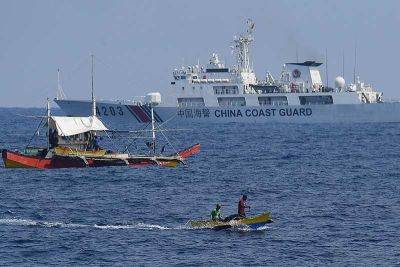Cyberattacks pound PH amid sea row
CYBERATTACKS against the Philippines have shot up 325 percent year-on-year in the first quarter of 2024 as tensions rise over the country's territorial dispute with China over the West Philippine Sea (WPS), a US-based cybersecurity company said.
The company Resecurity, which has worked with Philippine authorities to trace back the source of attacks to online facilities in China and Vietnam, said the number of «malicious cyber activity» against the Philippines has almost quadrupled compared to the same period in 2023.
The company said 55 percent of malicious cyber activities were hack-and-leak, 35 percent were misinformation and influence campaigns, and 10 percent were distributed denial-of-service (DDoS).
Hack-and-leak operations include the use of cyber tools to gain access to sensitive or secret material that is then released to the public.
Misinformation and influence campaigns, on the other hand, include infiltrating social media platforms and blurring the line between fact and fiction.
A DDoS attack is a malicious attempt to disrupt the normal traffic of a targeted server, service or network by overwhelming the target or its surrounding infrastructure with a flood of internet traffic.
The recent massive spike in cyber misinformation and hacking against the Philippines coincides with rising tensions between the country and China over the WPS.
AdvertisementResecurity said 80 percent of the cyberattacks target Philippine government institutions, while 20 percent focus on educational institutions.
Shawn Loveland, Resecurity chief operating officer, said in a recent blog post that these cyberattacks aim to «discredit the government and create chaos via cyberspace, as the Philippine population also relies on digital media channels and is active on social media networks.»
Loveland said the cyberattacks correlate with disinformation campaigns related to the long-standing territorial dispute between the Philippines and China over areas in the South China Sea and West Philippine Sea.
Resecurity also mentioned the «audio deep fake» of President Ferdinand Marcos Jr. supposedly ordering military action against China.
AdvertisementIn February, Philippine government







